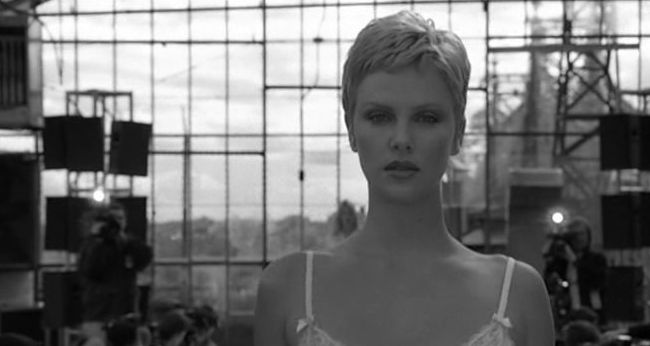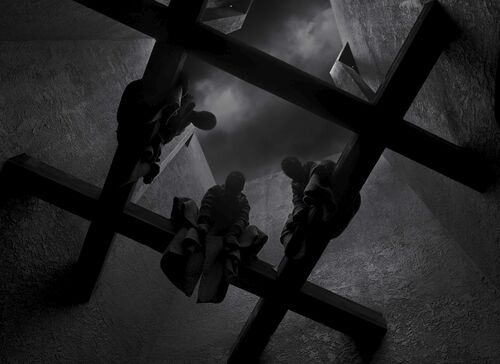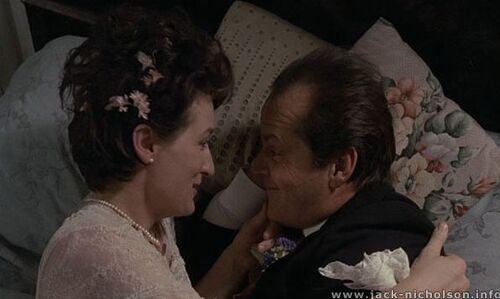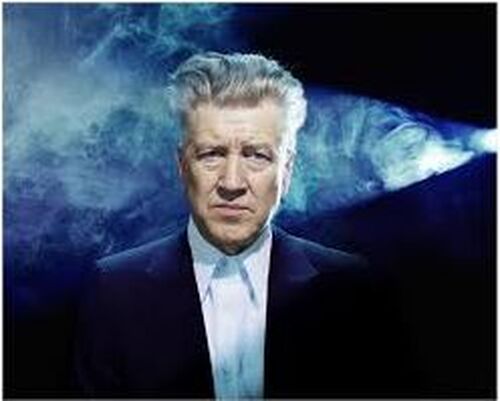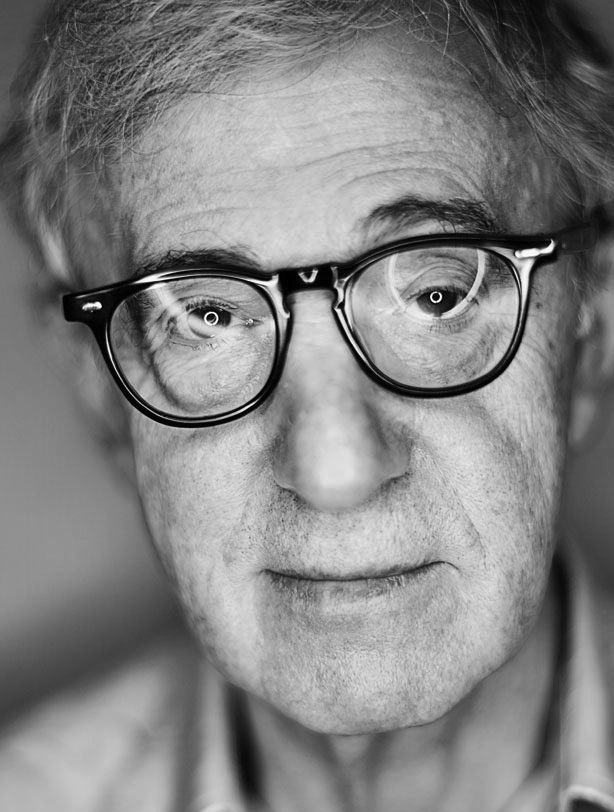
Woody Allen Retrospective: Celebrity
 The time has come, the time has passed actually, to properly highlight Woody Allen's black and white films. Throughout his career, Woody made six black and white films (Manhattan, Stardust Memories, Zelig, Broadway Danny Rose, Shadows and Fog, and Celebrity) beginning in 1979, well past the introduction of color photography in film. Black and white photography was something producers and other film executives were more than willing to leave in the past once color photography was available. Black and white photography still has its place in a colorized world, however. Mel Brooks and Gene Wilder, in 1974, were so adamant that their film Young Frankenstein would be shot on black and white film stock that they abandoned a deal because executives wanted the film to be shot in color. In a similar way, Woody Allen has executed an artistic vision in which he has filmed some of his films, iconically so, in black and white. Many of Woody's films shot in black and white are impossible to imagine any other way. The soft black and white hues in Manhattan particularly, force the audience to focus on the actors on-screen as they explore the depth of human emotions. I tend to trust filmmakers when they make bold decisions regarding their art no matter how unconventional they may be. Celebrity, the 1998 edition of Woody Allen's film-a-year output, certainly benefits from being shot in black and white, and I am thankful that it was executed in such a way. Celebrity blends anguish and comedy as it evaluates the symbiotic relationship between the media and celebrities, all the while illustrating the lives of a man and woman after their marriage ends. Starring Kenneth Branagh and Judy Davis as the divorced pair, Celebrity is a deeply probing look at the concept of identity, how that is altered by love, and how one's own expectations can change the course of their life. Never one to shy away from the philosophical struggles of our own existence, Woody Allen delivers another top-tier film that has sadly been largely ignored amidst his other more notable features.
The time has come, the time has passed actually, to properly highlight Woody Allen's black and white films. Throughout his career, Woody made six black and white films (Manhattan, Stardust Memories, Zelig, Broadway Danny Rose, Shadows and Fog, and Celebrity) beginning in 1979, well past the introduction of color photography in film. Black and white photography was something producers and other film executives were more than willing to leave in the past once color photography was available. Black and white photography still has its place in a colorized world, however. Mel Brooks and Gene Wilder, in 1974, were so adamant that their film Young Frankenstein would be shot on black and white film stock that they abandoned a deal because executives wanted the film to be shot in color. In a similar way, Woody Allen has executed an artistic vision in which he has filmed some of his films, iconically so, in black and white. Many of Woody's films shot in black and white are impossible to imagine any other way. The soft black and white hues in Manhattan particularly, force the audience to focus on the actors on-screen as they explore the depth of human emotions. I tend to trust filmmakers when they make bold decisions regarding their art no matter how unconventional they may be. Celebrity, the 1998 edition of Woody Allen's film-a-year output, certainly benefits from being shot in black and white, and I am thankful that it was executed in such a way. Celebrity blends anguish and comedy as it evaluates the symbiotic relationship between the media and celebrities, all the while illustrating the lives of a man and woman after their marriage ends. Starring Kenneth Branagh and Judy Davis as the divorced pair, Celebrity is a deeply probing look at the concept of identity, how that is altered by love, and how one's own expectations can change the course of their life. Never one to shy away from the philosophical struggles of our own existence, Woody Allen delivers another top-tier film that has sadly been largely ignored amidst his other more notable features.
Lee Simon (Kenneth Branagh) experiences an identity crisis after attending his high school reunion. Lee sees a room full of people that he deems as losers, causing him to evaluate his own life. Lee's assessment reveals him to be a generally unhappy person, dissatisfied with nearly every aspect of his life. Working as a travel writer, Lee has always earned a steady living but is unfulfilled by his work. His marriage to Robin (Judy Davis) has been troubled for some time, as she is increasingly prohibited by her personal neuroses and particular brand of Catholic repressions regarding her sexual life. The high school reunion is the tipping point of the feelings Lee has been struggling with. Essentially, it is his perception of others, and their possible perception of him, that sent Lee into a crisis resulting in his seeking a divorce from his wife. Along with the divorce, Lee also changes his career, settling as a journalist for an entertainment magazine as he vows to finish the screenplay he has been developing. For the first time in awhile, Lee thinks he has catapulted his life in the right direction, believing the connections he is making in the entertainment industry will pave the way for his screenplay being positively received. Through his work, Lee spends a majority of his time around celebrities witnessing their lavish expenses and experiencing their many idiosyncrasies. Lee has been initiated into a world where he sees limitless possibility for sexual encounters to soften the blow of his many life changes.
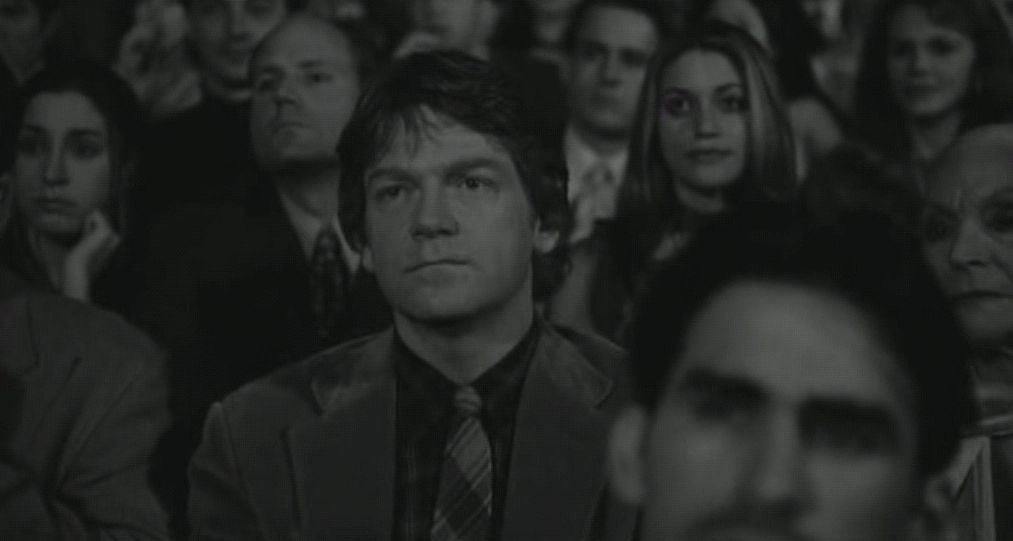
Conversely, Robin struggles through the divorce, questioning both her life's meaning and direction. Not knowing what else to do, Robin takes part in a Catholic retreat, allowing her time to reflect and contemplate the next step in her life with the help of her friends. Unexpectedly, at a plastic surgery consultation, Robin meets a television producer, Tony Gardella (Joe Mantegna), who hires her as a production assistant, thusly bringing her into the fold of celebrity life as well. Robin's job affords her the opportunity to be surrounded by the rich and famous as well as their handlers—people responsible for their happiness—and the media personnel who wish to know everything about each celebrity and write about it for their own livelihood. In love, Robin is reluctant to chase, unlike Lee, who is pursuing anyone he thinks he may have a chance with. Robin, still dismayed that her marriage has ended, has fallen into a relationship, quite by chance, with her boss, Tony. Lee and Robin have been worlds apart from one another throughout their bleak marriage; once divorced, however, their lives have never converged more. Each has taken a drastically different path since the dissolution of their marriage, one is closer to true happiness, the other becomes more unhappy than ever before.
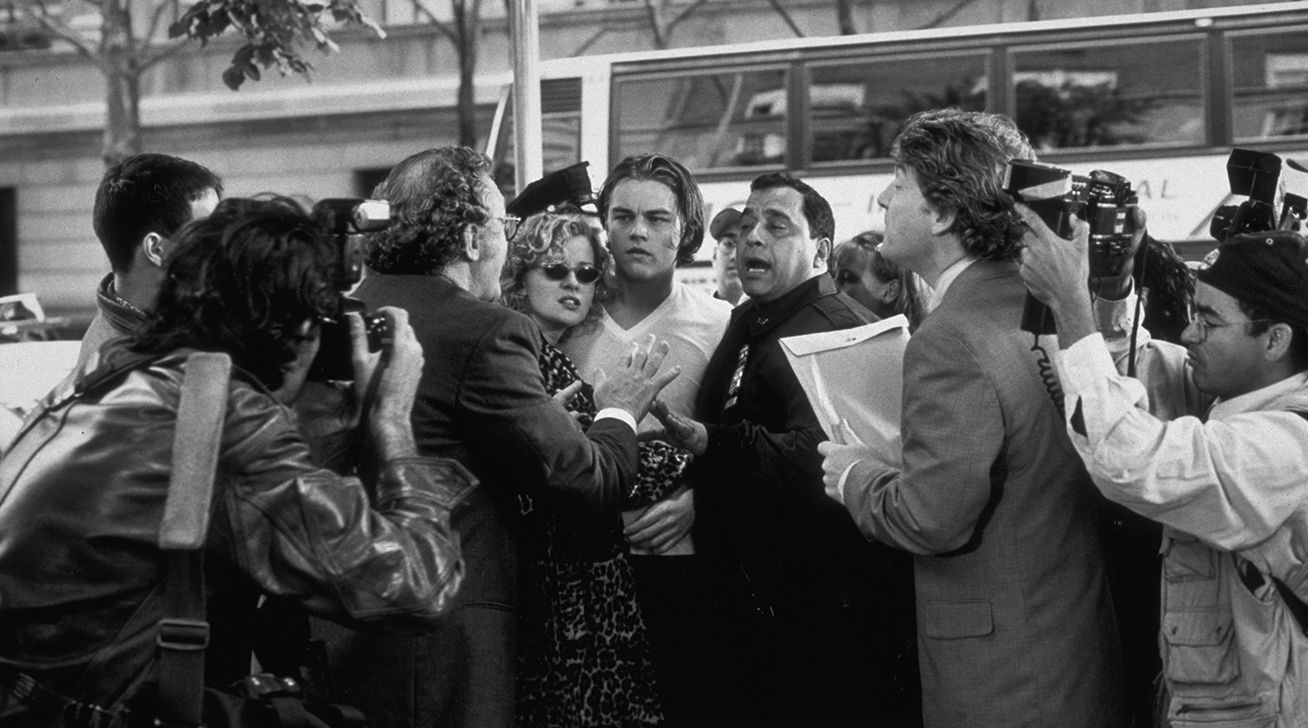
Celebrity, not unlike many of Woody Allen's films, is extremely dialogue-heavy. The fact that Woody can craft such cleverly quick-witted and biting scripts in a dialogue-heavy film is an aspect of his that should never be overlooked. One of my favorite parts of a Woody Allen film is how often he tells two separate plots with such precision. Celebrity evenly portrays life upheaval from Lee's perspective and Robin's perspective separately. Even considering the number of flashbacks and abrupt cuts between the two sides of the story, the film converges seamlessly by the time the credits roll. By the end of the film, we see the perspective of each come together as the two principals meet in a crowded movie theatre after both have been thrust into the fast-paced world of celebrities and those that depend on them. In an eye-opening exercise, both Lee and Robin have learned that the glamorous life of a celebrity, the only side seen by the public at large, is not what it's made out to be. It would appear to be an ideal life if all one has to do is be seen as beautiful, attend premieres in gorgeous clothes and parade in front of a camera for work. What only those inside the industry see, however, is how often one is shuffled around a film set before an effect is wasted or a light fades, or the pressure of catching the first symptoms of a cold so you're not out of work failing to fulfill a contract. Woody Allen's film, Celebrity, paints a complete picture of the ones we think have perfect lives and exposes how often they are used for their celebrity status as a stepping stone for others, and how often they are taken advantage of. Woody also exposes how altered the lives of those that work with the celebrities are, how exhausting a job it is to work around the neuroses of those who never get to leave the public eye. My favorite element at work in Celebrity is the realization that we are not as separate as we think. We are constantly affected by the lives of others in ways that we are unable to fathom. Lee's and Robin's stories are told in separate parts, and the audience has the advantage of seeing them at the same time, revealing that they are not diverging as much as they think. Just as the letters in the sky are shown fading at the beginning and end of the film, we all need a little "HELP" from one another, as Woody Allen brilliantly shows in his adaptation of the entertainment industry.
